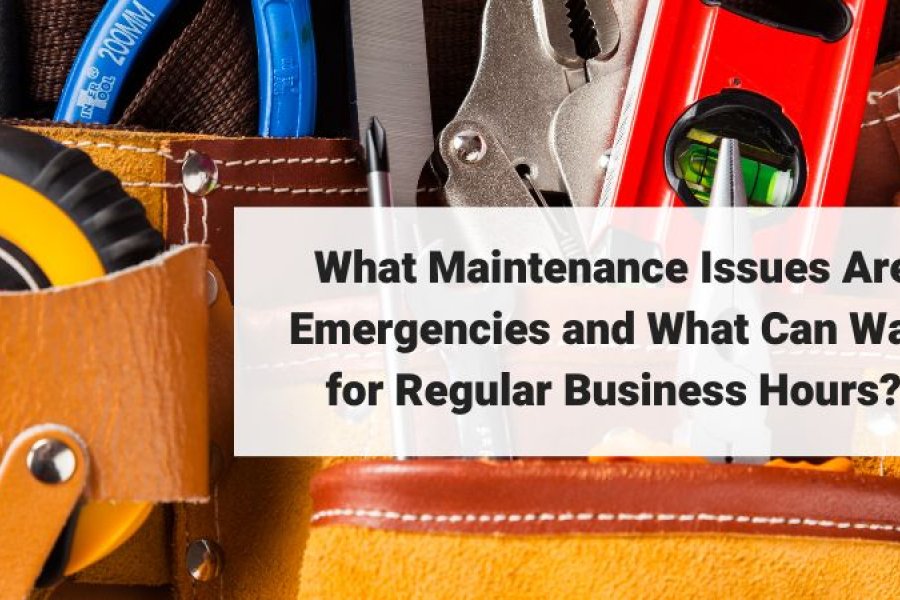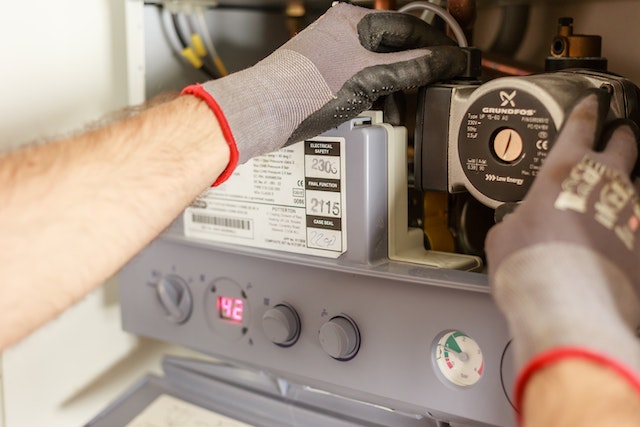
Landlords can sometimes find themselves answering phone calls past midnight when a property emergency strikes. It could be an urgent situation such as a gas leak, flooding, or electrical issues.
Landlords need to know how to handle after-hours emergencies to reduce potential safety risks and create a calm atmosphere. That’s why landlords must learn to identify what types of situations are categorized as emergencies and how to manage them well.
How Does One Define a Rental Property Emergency Maintenance?
Check what scenarios are labeled an emergency. Some situations may be inconvenient to the residents but they don’t necessarily fall under an emergency. In other words, some of the reported issues can be managed in the morning. It’s up to the judgment of both the landlord and tenant when they meet different situations.
How Do You Define an Emergency?
A property emergency can be defined if the following occurs:
- Serious injury or harm to the residents
- Massive property damage
If a renter is injured or harmed and the property damage is severe it can result in health and safety risks, then this can equate to an emergency. Here are some listed examples of maintenance concerns:
- Flooding
- Fire
- Frozen pipes
- Broken doors or locks that can’t be secured
- Gas leaks
- Lack of heating in winter
- Lack of air conditioning on extremely hot days
- Electrical issues
- Sewer backup and flood
- Leaking roof
- Extended power outage
- Break-ins by intruders

What is Not Considered a Maintenance Emergency?
After a landlord assesses the situation and finds that the tenants remain unharmed and the property damage is minimal, then this isn’t labeled an emergency. If health and safety risks are not encountered, the situation is not categorized as an emergency.
Here are some situations that can be dealt with by the property owners during regular working hours:
- Lack of hot water supply
- Broken ice maker
- Lack of air conditioning ( if the outside temperature is below 90 degrees)
- Lack of heating ( if the outside temperature is below 50 degrees)
- Malfunctioning appliances
- Noise complaints
- Minor leaks
- Parking conflicts
How to Manage Rental Property Emergency Maintenance?
Tenants expect their landlords to be fully prepared when a property emergency hits. They must already have contingency plans and be ready with emergency maintenance procedures. This cultivates trust and strengthens the landlord-tenant relationship, leading to tenant loyalty and lease renewals.
Here are critical factors in handling property emergency maintenance:
Reachability
Tenants must be able to reach out to the landlords, especially when an emergency happens. Though you will be contacting repair specialists, renters would still need you to be around to listen to their concerns and answer any questions they want to raise. They would also need an authoritative person to guide them and issue instructions on what to do.

Emergency Services
Landlords must be prepared and have access to police, fire, and utility services, especially when property emergencies happen past regular hours. It’s also advisable to have a network of vendors you can contact 24/7 when situations outside the norm occur in your rental property. It’s always best to be prepared to handle urgent property issues promptly.
Open Communication
Landlords must continue to be in contact with the renters after an emergency has been brought to their attention. You must provide them with ongoing status reports of how the issue is being handled.
Landlord Responsibilities
Landlords need to know what counts as emergencies so they can act immediately and find quick solutions. At the same time, they must know how to delegate situations for renters to resolve.
Property issues that don’t fall under an emergency category can be dealt with during normal business hours. They must still send a notice to the renters that repairs will be performed when they schedule a repair session.
Answering Vital Questions
Emergencies require landlords to make quick decisions. They must know what’s happening on the ground and communicate this information to the renters. Having available data lets landlords decide what to do and give the right instructions to the residents.
An Understanding Perspective
Emotions can run high when renters are presented with uncertain and chaotic circumstances. Landlords must be patient, listen to the tenants, and remain alert to gather information, provide assistance and guide the renters on what steps to take.

Documentation
Though verbal communication is often the natural course when an emergency happens, landlords must still document the situation. It’s recommended to take notes of the repairs and resolutions done and create follow-up plans. Once the urgent crisis is over, you can send an email to the renter and provide a recap of the situation and how it was handled to have written evidence of what took place.
Hiring Property Managers
Successful landlords often partner with professional property management companies to take care of their rental units superbly. Before engaging the services of a property manager, make sure to choose the right one.
Important factors to seek in selecting a property manager:
- Area of Expertise - Some property managers specialize in handling commercial units while others focus on vacation rental homes, apartments, or HOA multi-family properties. Make sure to do your research and hire someone whose specialization aligns with your rental management needs.
- The Number of Support Staff - Having enough support staff can make a difference in streamlining the rental operation. A support team that includes accountants, maintenance personnel, and administrative staff will be beneficial to property owners.
- Available Services - Assess the services offered by the property manager so you get the most value from the management fees you’re paying.
Bottom Line
Knowing which maintenance issues constitute an emergency and which ones can wait to be addressed during standard operating hours will save you a lot of time and stress as a landlord. You could also employ the services of a trusted property management company in your local area if you need help with this task.
Contact State Property Management today! We offer a full range of high-quality services to property owners to provide them with peace of mind.